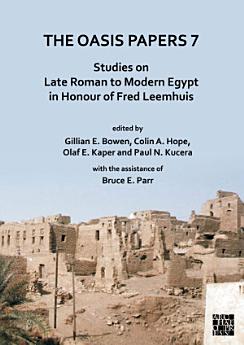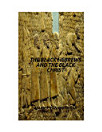The late Professor Fred Leemhuis was an Arabist and Islamist at the University of Groningen, well known in the Netherlands for his translation into Dutch of the Qur’an, sometime Director of the Dutch-Flemish Institute Cairo, and Director of the Qasr Dakhleh Project. His interests ranged across all things to do with Egypt but especially those following the Arab conquest, and this tribute to his memory attempts to reflect that diversity and also highlight his significant work at al-Qasr which cast valuable light on periods not well known for the Western Desert of Egypt. Several papers focus upon this imposing medieval and Ottoman settlement in Dakhleh, and the discovery of the late Roman fort there: these range from conservation, to archaeology, artefacts, and texts as well as an imaginative account of people moving to the fort from nearby Trimithis when it was going into decline in the late fourth century. Aspects of burial practice in that oasis and neighbouring Kharga, both early Christian and Roman, are discussed, and the identification of cancer amongst the inhabitants of Kellis in Dakhleh is proposed. The extent of settlement in Dakhleh during the Fatimid to Mamluk Periods is discussed using glazed ceramics; other topics include aspects of architecture at another of Dakhleh’s Islamic sites, al-Qasaba, and Arab tribal marks on rock surfaces in Dakhleh. Rock art study also extends into Kharga. The discoveries at a site in the Nile valley possibly occupied by the Blemmeyes, who harassed many parts of Egypt in late antiquity, are outlined, along with the associated rock art. Moving into more recent times, the survival of a medieval tradition of large mud-brick walls on the edge of the area of cultivation amongst modern Egyptians in the valley, and a contemporary fertility ritual in Dakhleh, are described, as are notions of how to address God and others in translations of the Qur’an. The restoration of a spectacular mausoleum in Cairo’s ‘City of the Dead’ is described, and the first detailed account of hostilities in the Egyptian oases during the First World War is presented.




